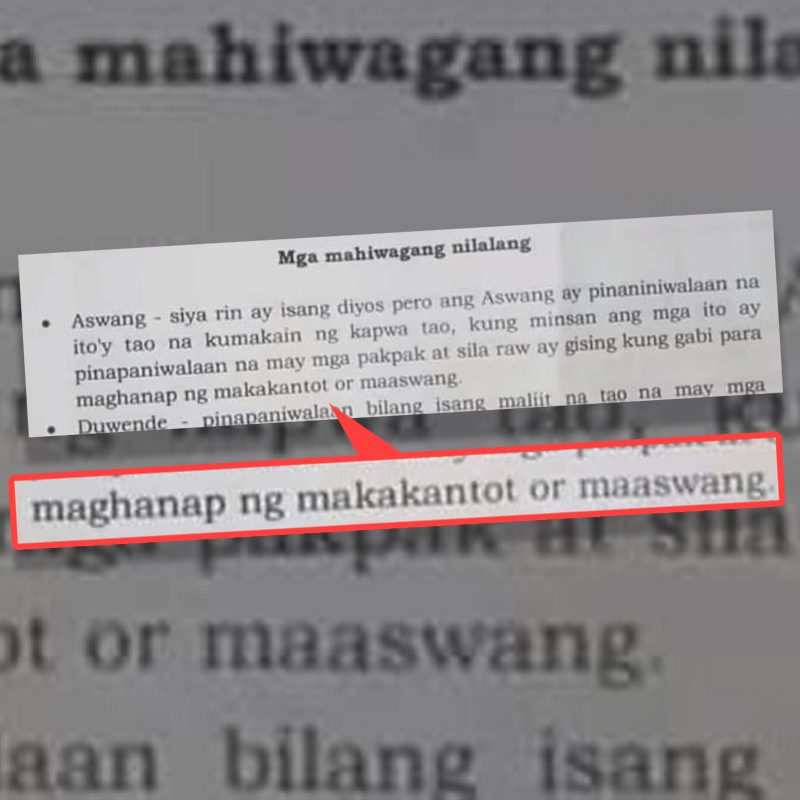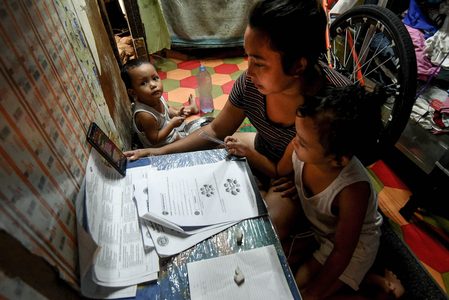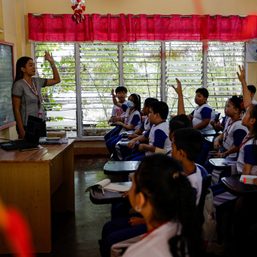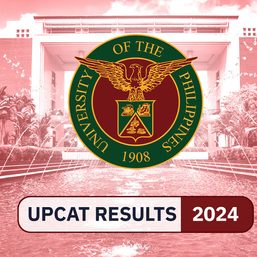SUMMARY
This is AI generated summarization, which may have errors. For context, always refer to the full article.

Where’s Alexandra Trese to slay this kind of aswang?
A sex-crazed aswang in a learning module horrified lawmakers on Monday, June 14, as they investigated errors in billions of pesos worth of student readings from taxpayers’ money.

The aswang is often depicted as a winged monster in Filipino folklore, but a learning module on Philippine literature erroneously described it as a creature looking for sex at night.
The module was used in February by Grade 10 students, aged around 15 years old, in the public schools of Mabalacat, Pampanga. It’s one of the materials produced using the P15-billion ($313.3-million) budget for learning modules as the Philippines implements distance learning during the COVID-19 pandemic.
Part of the learning module read: “Ang aswang ay isang diyos pero pinapaniwalaan na ito’y tao na kumakain ng kapwa tao. Pinapaniwalaan din na may pakpak ang mga ito at sila raw ay gising kung gabi para makahanap ng makakantot or maaswang.” (The aswang is a god but it’s believed to be a human being that eats other human beings. Many believe they have wings and are awake at night to find someone to have sex with or devour.)

Antonio Calipjo Go, a teacher known for pushing for error-free textbooks, presented and criticized this learning material in a House panel hearing on Monday. The congressional hearing sought to investigate errors in modules used by the Department of Education (DepEd).
“The DepEd cannot wash its hands of it. Division office ‘yan (That is a division office), of which they have direct supervision,” said Go.
Education Undersecretary Diosdado San Antonio said the mistake was part of the errors submitted to them. He added that the division office in Pampanga has already acted on it.
“Naglabas po ang superintendent ng instruction na mali ang nilalaman ng worksheet na ito,” he said. (The school division superintendent has already released the instruction that this worksheet has erroneous contents.)
The controversial learning module was recalled in February after the gaffe was spotted.
Agusan del Norte 1st District Representative Lawrence Fortun asked why the mistake was able to pass through DepEd’s vetting process, as the error was “glaring” and not related to the topic.
“Napaka-glaring po ng error. Hindi lang siya error na nagkamali ng spelling o editorial preference. Napakalayo sa definition at bakit ganoon ang language? At ‘yung langugage na pumasok ay wala naman relasyon sa depinisyon na gustong ibigay,” he said.
(The error was glaring. It’s not just an error where a misspelling was committed or there was an editorial preference. The definition was not related to the topic. Why use that kind of language? The language used was not related in the definition they wanted to give.)
In response, Education Undersecretary Tonisito Umali said that while DepEd has vetting procedures for publishing learning modules, some mistakes have still been committed.
“We will look again to our process and we are open to suggestions,” Umali said.
P15-billion budget
This was not the first time that DepEd committed a blunder in its learning materials.
Since classes started on October 5, 2020, errors in learning modules have continued to surface on social media, with netizens calling out DepEd for the mistakes, given the billions of pesos allocated for these teaching aids.
The government allocated P606.5 billion ($12.65 billion) for the DepEd’s budget this year. A total of P15 billion was allocated for the printing of learning modules.
In a Viber message to Rappler on Monday afternoon, Education Undersecretary Anne Sevilla said that there is a “standby unprogrammed fund” in the 2021 budget amounting to P6 billion in case funds are still needed for printing. “But release of P6 billion is subject to excess collection in revenue or new taxes passed,” she said.
Even before the pandemic, erroneous textbooks for public schools have been a problem. In 2019, the Commission on Audit (COA) flagged the DepEd, asking it to correct the errors in P254-million ($5.3-million) worth of textbooks being used in public schools.
Philippine schools have stopped face-to-face classes for over a year now, forcing students and teachers to shift to distance learning. (READ: FAST FACTS: DepEd’s distance learning)
Distance learning, however, has been widely criticized as the Philippines appeared unprepared for it. – Rappler.com
Add a comment
How does this make you feel?

![[PODCAST] Ang mga maling impormasyon sa DepEd distance learning materials](https://www.rappler.com/tachyon/2020/11/newsbreak-beyond-the-stories-square-with-topic.jpg?fit=449%2C449)
![[The Slingshot] Red zipper on the mouth of Sara Duterte](https://www.rappler.com/tachyon/2024/04/TL-red-zipper-sara-duterte-april-12-2024.jpg?resize=257%2C257&crop=335px%2C0px%2C720px%2C720px)

![[OPINION] How about setting up a heat health warning system in PH schools?](https://www.rappler.com/tachyon/2024/04/heat-health-warning-system-in-PH-schools.jpg?resize=257%2C257&crop_strategy=attention)

![[ANALYSIS] The multiplier effect of negligence in education](https://www.rappler.com/tachyon/2024/04/The-multiplier-effect-of-negligence-in-education.jpg?resize=257%2C257&crop=277px%2C0px%2C720px%2C720px)
![[Time Trowel] Mentorship matters](https://www.rappler.com/tachyon/2024/04/mentorship-matters.jpg?resize=257%2C257&crop_strategy=attention)




There are no comments yet. Add your comment to start the conversation.